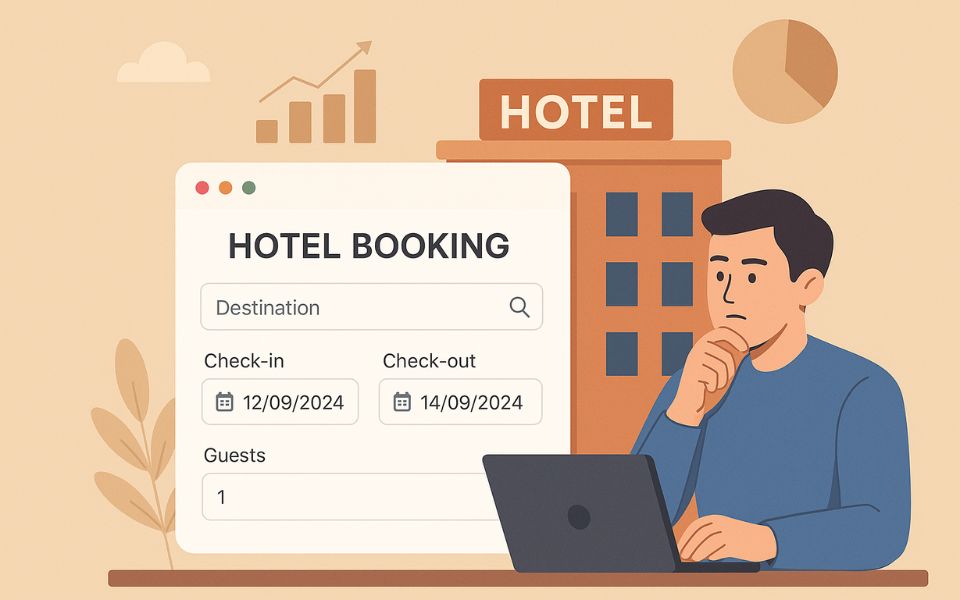In the world of hotel marketing, one important piece of data that is often overlooked is the booking window. The booking window is the time span between a guest making a reservation and their stay. For example, if someone books on the 1st for a stay on the 10th, their booking window is 9 days.
Understanding the booking window can help hotels develop more effective pricing, promotion, and advertising strategies.
Why is the Booking Window Important for Hotels?
1.Setting a Pricing Strategy
By understanding the booking window pattern, hotels can determine when to raise or lower prices. For example, if the majority of guests book 30 days before arrival, the hotel can offer an early bird promotion for that period.
2.Improving Hotel Ad Effectiveness
Booking window data helps adjust campaign timing. For example, if international guests typically book 60 days in advance, Google Ads or Meta Ads should be active well before the peak season.
3.Reducing the Risk of Empty Rooms
Understanding the booking window also helps hotels predict demand. This way, they can be better prepared to offer last-minute deals if there is a gap in occupancy.
Booking Window Types Based on Segmentation
1.Short Booking Window → usually occurs with local guests or last-minute travelers.
2.Medium Booking Window → common for domestic tourists who have planned their vacations well in advance.
3.Long Booking Window → often seen with international guests or luxury travelers who typically book 30–90 days in advance.
Each segmentation requires a different marketing strategy.
Booking Window Management Strategy
1. Use Historical Data
Analyze previous years' data to understand booking window patterns. For example, do guests book more closer to the holiday season or further in advance?
2. Adjust Offers
Early bird promos for guests with a long booking window. Last-minute deals for guests with a short booking window. Bundling packages (room + experience) for a medium booking window.
3. Optimize Hotel Ads
Use Google Ads and Meta Ads based on guest behavior. For example, target luxury travelers with early ads (60–90 days in advance), and run retargeting campaigns for guests who have checked prices but haven't booked yet.
4. Integrate with Direct Booking Channels
Ensure your hotel website offers exclusive promotions based on the booking window. For example, "Book 30 Days in Advance and Save 20%."
5. Collaborate with ecommerceloka
Managing a booking window strategy requires consistent data analysis. Partnering with ecommerceloka can help you identify trends and integrate them with your hotel marketing and hotel ads strategies for greater effectiveness.
The booking window isn't just a number; it's a crucial insight for improving your hotel marketing strategy. By understanding when guests typically book, hotels can adjust pricing, promotions, and advertising timing to better target their target audience.
This strategy not only increases occupancy but also helps hotels optimize their advertising budget. For greater efficiency, collaborating with ecommerceloka can be a solution for developing a data-driven hotel marketing strategy.
